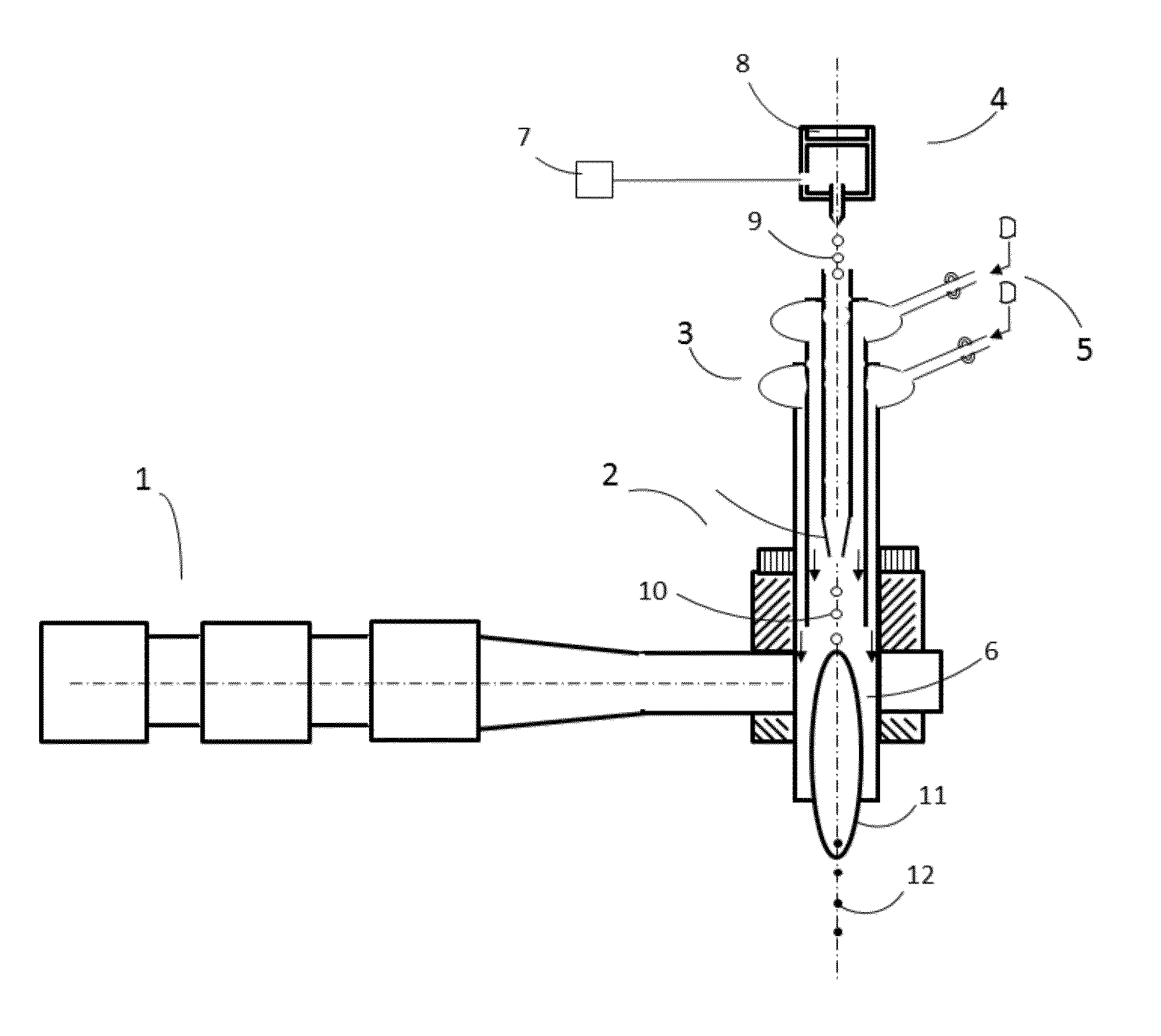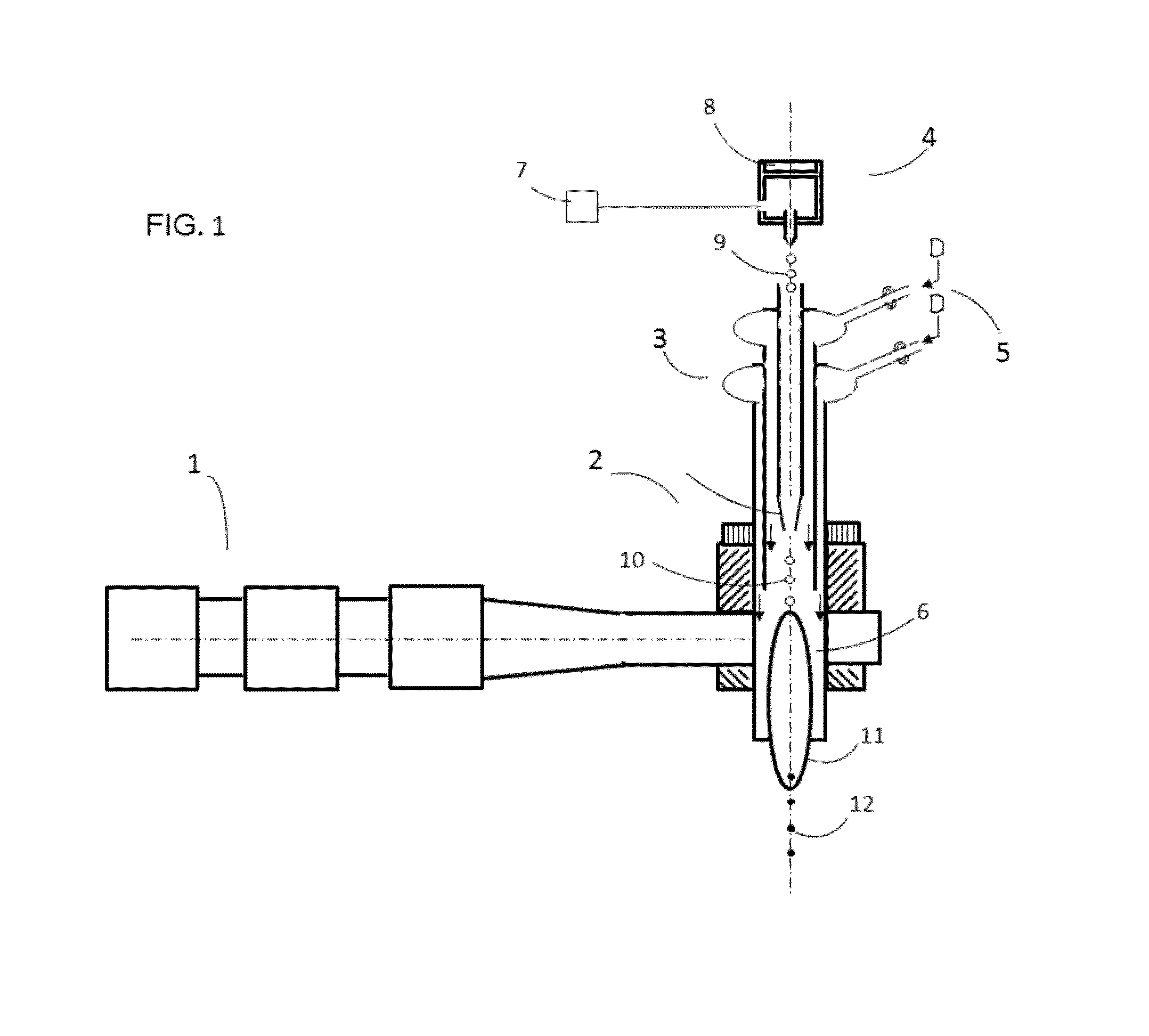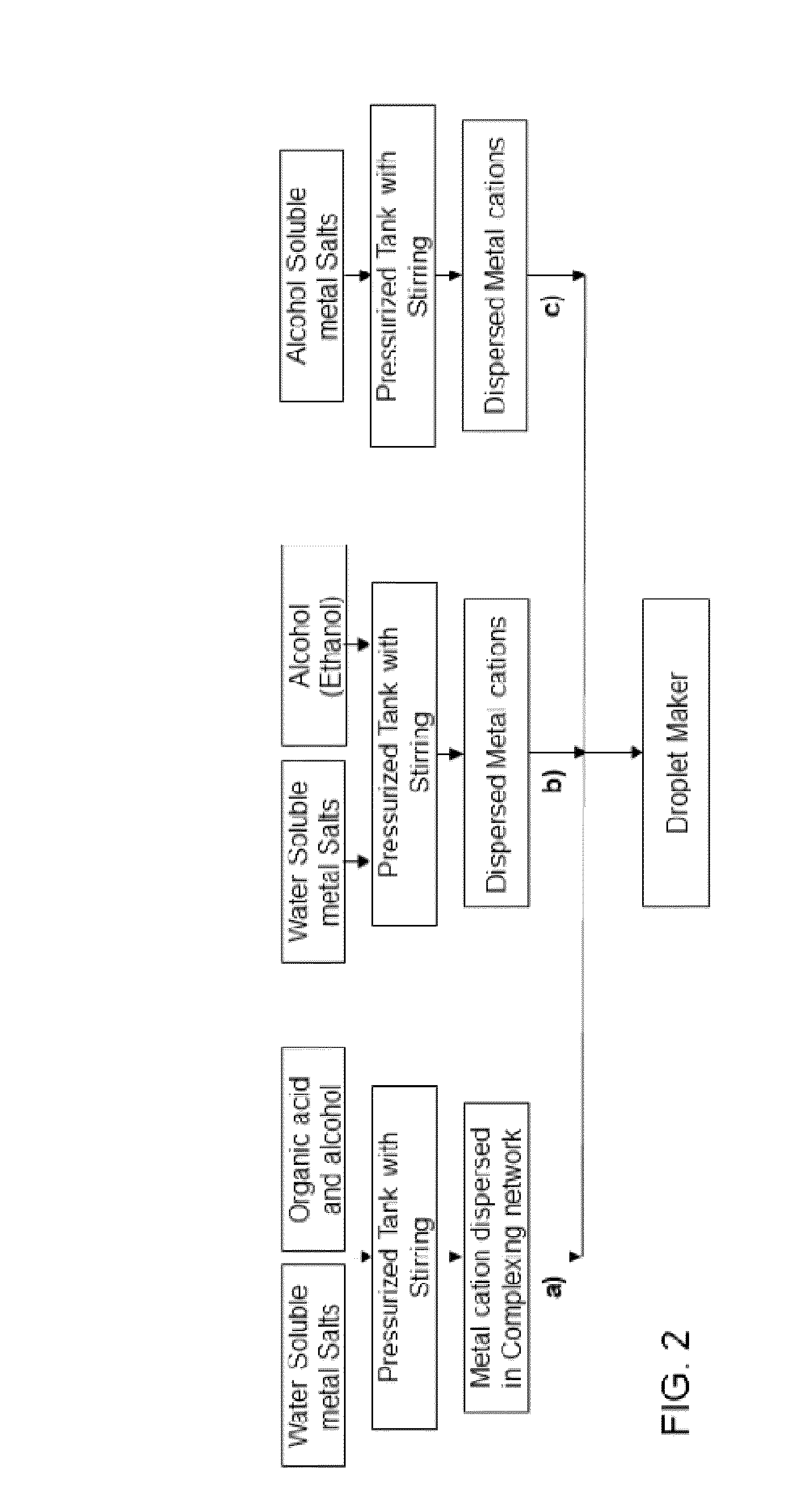Method for the production of multiphase composite materials using microwave plasma process
a composite material and microwave plasma technology, applied in the preparation of alkaline-earth metal aluminates/aluminium-oxide/aluminium-hydroxide, oxygen/ozone/oxide/hydroxide, etc., can solve the problems of difficult scaling, difficult to achieve the effect of reducing the number of steps, and increasing the physical and chemical properties of the solvent involved
- Summary
- Abstract
- Description
- Claims
- Application Information
AI Technical Summary
Benefits of technology
Problems solved by technology
Method used
Image
Examples
Embodiment Construction
[0030]Disclosed herein is a method to produce multiphase composite materials directly from solution precursor droplets by a fast pyrolysis process using a microwave plasma embodiment containing a microwave generating source as described in patent application # US 2008 / 0173641, a dielectric plasma torch described in a patent application elsewhere, and droplet maker dispensing uniform precursor droplet described in a patent elsewhere. Here, using homogenous solution precursors, droplets are generated with a narrow size distribution, and are injected and introduced into the microwave plasma torch with generally uniform thermal path. The generally uniform thermal path in the torch is achieved by axial injection of droplets into an axisymmetric hot zone with laminar flows. Upon exposing to high temperature within the plasma with controlled residence time, the droplets are pyrolyzed and converted into particles by quenching with a controlled rate of the exhaust gas in a gas chamber. The p...
PUM
| Property | Measurement | Unit |
|---|---|---|
| Cooling rate | aaaaa | aaaaa |
| Cooling rate | aaaaa | aaaaa |
Abstract
Description
Claims
Application Information
 Login to View More
Login to View More - R&D
- Intellectual Property
- Life Sciences
- Materials
- Tech Scout
- Unparalleled Data Quality
- Higher Quality Content
- 60% Fewer Hallucinations
Browse by: Latest US Patents, China's latest patents, Technical Efficacy Thesaurus, Application Domain, Technology Topic, Popular Technical Reports.
© 2025 PatSnap. All rights reserved.Legal|Privacy policy|Modern Slavery Act Transparency Statement|Sitemap|About US| Contact US: help@patsnap.com



